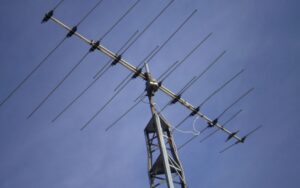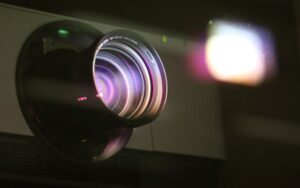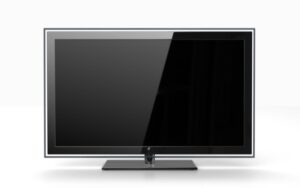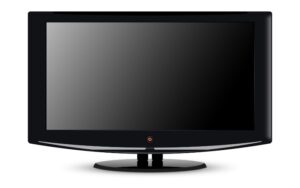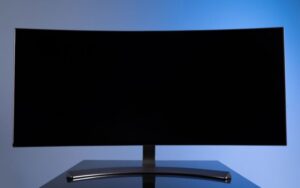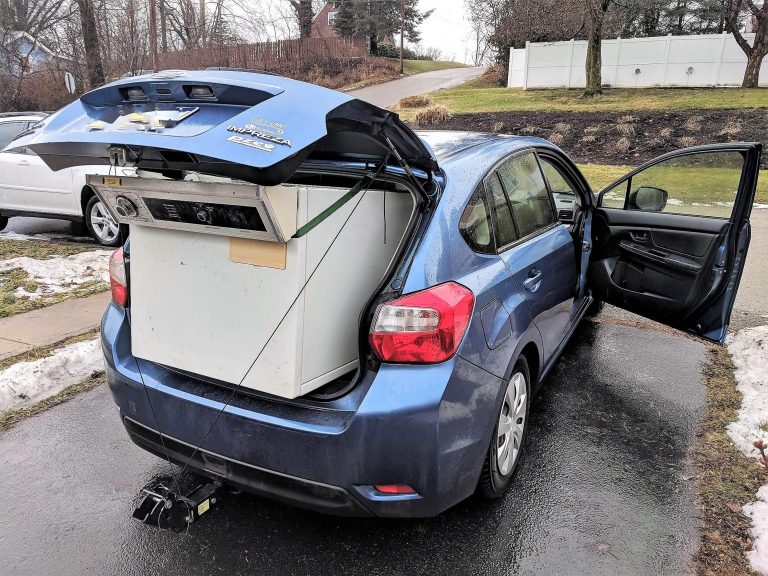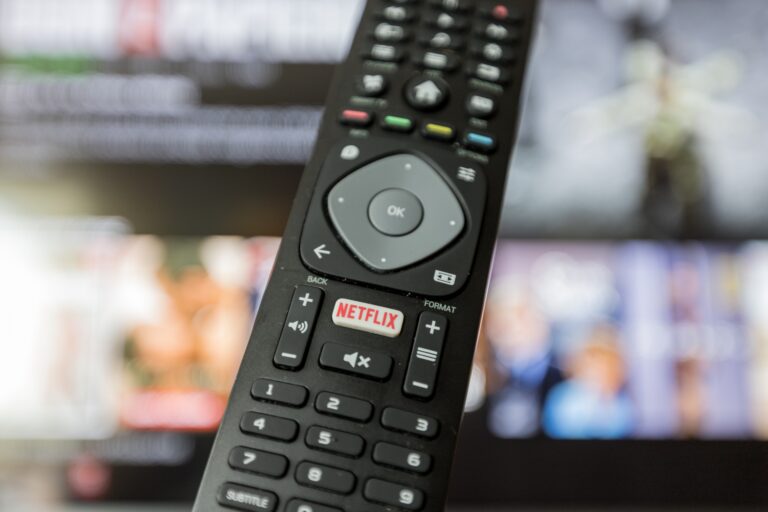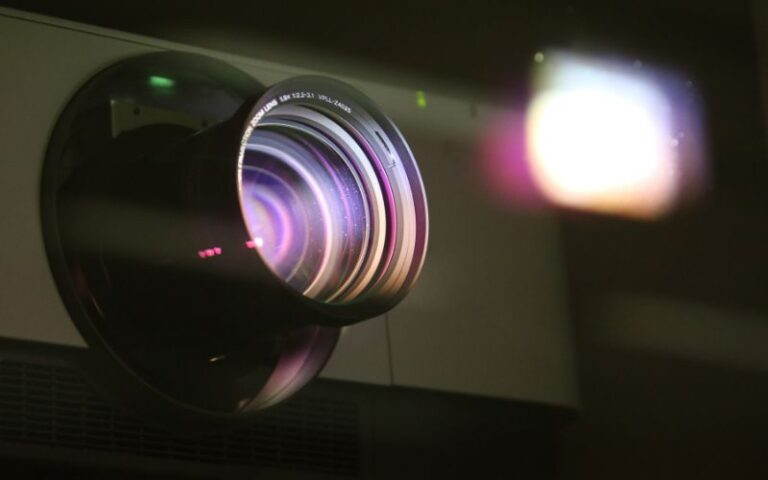Can I Leave My TV On All Night? (All You Should Know)
Binge-watching your favorite show on TV through the night after work can serve as premium entertainment. Even if you sleep off, the TV will carry on with no major issues.
The TV’s design allows them to operate for long hours. However, it would help if you learned about some minor consequences of leaving your TV on all night without using it.
You can leave your TV on throughout the night as long as moving images are on the screen. LED TVs can stay on through the night without serious adverse effects. However, some TVs, like plasma TVs, tend to overheat after continuous operation. The main worry with leaving a TV on is that the lifespan declines quicker.
In this article, you’ll read about the effects of leaving your TV on for long periods. You’ll also learn how to use your TV so it can serve you longer.
Is It Okay to Leave Your TV On All Night?

It’s fine to leave your TV on all night since it poses no short-term risks. Nevertheless, you do need to understand the effects of leaving your TV on all night in the long term.
The following are the effects of leaving your TV on through the night.
Image Retention/Burn-in
Image burn is a noticeable mark that appears and remains on the screen. This burn happens when an image remains on the TV for a long time.
Image retention is when the effect appears temporarily. On the other hand, a burn-in can be permanent and remain on the TV forever.
The effect mostly manifests through channel logos or sports labels appearing at any screen corner.
This effect mostly happens to TVs in places like hospitals and airports. These TVs tend to remain on the same channel for long periods and are prone to the effect.
Nevertheless, your home TV could develop this effect. If you leave a channel with a logo somewhere on the screen, an afterimage can appear in the morning.
You can prevent this from happening by reducing your screen brightness. Also, ensure you don’t leave your TV on with a channel with still images.
Reduced Lifespan
Leaving your TV on all night can diminish its quality. TVs have an average lifespan of about 70,000 – 80,000 hours. This period is equivalent to10 years.
If you’re binge-watching a show through the night, it’s fine to use the TV. However, leaving the TV running is not advisable when out of use.
Those hours of non-usage accumulate gradually and eventually reduce the TV’s lifecycle.
If your TV stays on through the night always without usage, it will serve you for half the normal lifespan. Therefore, it’s good practice to turn off the TV when you’re not using it.
Does Leaving Your TV On All Night Increase Your Electricity Bill?
Your TV staying on at night can increase your electricity bill. On average, using TVs costs about $1.34 monthly and $16.04 a year.
The TV’s age can determine how much energy it pulls from the current. A new TV consumes more current than an old one.
Even the TV’s screen size determines how much current it uses. The larger the TV, the more current it pulls.
The table beneath illustrates the various costs of using different TV sizes.
| TV Size | Hourly Cost | Daily Cost | Monthly Cost | Yearly Cost |
|---|---|---|---|---|
| 19 inches | $0.0025 | $0.06 | $0.41 | $4.86 |
| 24 inches | $0.0030 | $0.07 | $0.48 | $5.71 |
| 32 inches | $0.0042 | $0.10 | $0.67 | $8.07 |
| 40 inches | $0.0051 | $0.12 | $0.81 | $9.69 |
| 43 inches | $0.0072 | $0.17 | $1.04 | $12.44 |
| 50 inches | $0.0106 | $0.25 | $1.64 | $19.64 |
| 55 inches | $0.0115 | $0.28 | $1.76 | $21.13 |
| 65 inches | $0.0142 | $0.34 | $2.12 | $25.42 |
| 70 inches | $0.0164 | $0.39 | $2.56 | $30.75 |
| 75 inches | $0.0172 | $0.41 | $2.54 | $30.50 |
From the above table, you’d agree that there is a high cost of using TVs.
From the 19-inch and 75-inch TV, the cost of using a TV from 12 am to 6 am is between $0.015 and $0.1032. This cost shows that the TV can increase the electricity bill.
The bill accumulates significantly when you keep leaving the TV every night. So, a wise way to cut costs is to switch off your telly when out of use.
What Happens If You Leave a Smart TV On All Night?
You can leave your smart TV on all night without major issues. Watching a movie through the night till the morning won’t harm your TV.
The highest risk this practice poses is lifespan decrease. Your TV has a lifespan that is dependent on how much you use the TV.
If you have no worries about the decline in the TV’s lifecycle, you can keep it on all night. Also, sometimes people enjoy sleeping to the noise of the TV.
If this is a habit, then there are steps to mitigate the TV’s decline over time.
The following are some of the ways to keep your TV on safely.
Avoid Static Images
Static images can imprint on your TV if the image remains on the screen for a long time. It would be best if you stayed away from channels with static logos, borders, stickers, or bars on the screen.
Sports and news channels have such logos and bar on the screen. Leaving the TV on such channels can produce these afterimages.
One way to tackle this effect is by regularly changing the TV’s picture size. This way, you’ll prevent any image from burning unto the screen of your TV.
Reducing the TV Brightness
When your TV is bright, it raises the chances of creating a burn-in. The logical thing to do, then, is to lessen your TV’s brightness to suit the light in the room.
You can go through the settings on your TV; preset modes have less contrast. Some TVs have modes like film, dark room, and medium room.
Keep your TV safe by picking any of those modes if you want the TV running till daybreak. The modes will reduce the chance of burn-ins on the screen.
Allow Proper Ventilation
Since you’re leaving the TV on for long periods, heat can build up and start a fire. All televisions feature vents that let in a breeze and expel hot air.
Make sure nothing is obstructing these vents to allow proper air circulation. Ensure that curtains, drapes, or furniture aren’t obstructing the TV vents.
The TV needs the right ventilation to cool its internal components.
Can You Leave Your TV On 24 Hours Daily?
The Television can operate 24 hours every day. However, the TV’s quality declines rapidly due to this heavy use.
For instance, LED TVs can serve 60,000 hours, losing about 20% brightness.
60,000 hours looks like a large figure. Though, if you’re using the TV 24/7, it’ll take about seven years to start deteriorating.
Therefore, if you want your TV to last longer, you should switch it off when not in use. Also, you can extend TV life by lowering the backlight to under 75%.
Lower backlight can extend TV life to about 100,000 hours. Furthermore, leaving the TV on all day can cost an average of 24 cents daily. It could be higher depending on your TV.
You can leave the TV daily if you’re ready to pay the cost. Just ensure that there is enough ventilation in the room with the TV.
Ventilation will prevent the TV from overheating and burning.
You May Also Like To Read
- Does TV Antenna Size Matter? (All You Need To Know)
- Do You Need A Special Projector For A 4K & Curved Screen?
- Does Vesa 200 X 300 Exist? (Let’s Find Out)
- Can You Transport An OLED TV Flat? (Read Before Doing It)
- 6 Causes That Your Hisense TV Has Dead Pixels!
- 6 Reasons For Black Shadow on Hisense Tv! (4 Solutions)

